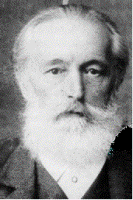Presents
Robert Fuchs
|
Soundbites Terzetto No.1 |
 |
Soundbites Terzetto No.2 |
Two Terzettos for 2 Violins and Viola
No.1 in E Major, Op.61 No.1 / No.2 in D Major, Op.61 No.2
In Austrian composer Robert Fuchs (1847-1927) we have yet another whose music is almost always on the very highest level and deserving of performance in concert. Fuchs was born near the Styrian capital of Graz and attended the University of Vienna Conservatory studying with Otto Dessoff and Joseph Hellmesberger. By 1875, Fuchs himself was teaching at the Conservatory, eventually rising to the rank of Professor of Composition. He was one of the most famous and revered teachers of his time. Mahler, Sibelius, Hugo Wolf, Franz Schmidt, Alexander Zemlinsky, Franz Schrecker and Richard Heuberger were among his many students. Brahms, who almost never praised the works of other composers wrote, “Fuchs is a splendid musician, everything is so fine and so skillful, so charmingly invented, that one is always pleased.”
Writing in his Chamber Music Handbook, the famous chamber music critic Wilhelm
Altmann has this to say about the Terzettos: “In his two Op.61 Terzette,
published in 1898, Fuchs solves the very difficult problem of no bass—the
absence of the cello—in as good a fashion as is possible. These works, which are
structually excellent, contain many fine ideas and noteworthy melodies. Neither
work Presents
any great technical difficulties other than what any normal string
trio requires, good ensemble playing and purity of intonation."
|
Notes to Terzetto No.1 |
Notes to Terzetto No.2 |
|
Op.61 No.1 begins with a slow introduction, Langsam mit sinnigem Ausdruck, which leads to the lilting main section Heimlich bewegt, which is full of passion. An real archetypical Scherzo, Lebhaft bewegt, comes next. The third movement, Langsam sehr zart, is a romance. The lively finale, Lebhaft übermütig, is full of high spirits and dance-like rhythms.” Parts: $14.95 Parts & Score: $19.95 |
The first movement, Energisch bewegt, doch nicht zu rasch has a very effective ostinato accompaniment in the viola to a warm theme. The second movement, Anmutig, brings Brahms to mind. A piece in true Vienna Conservatory tradition serves as the scherzo. Next is a very attractive Intermezzo. The finale sports a charming main subject. Parts: $16.95
|